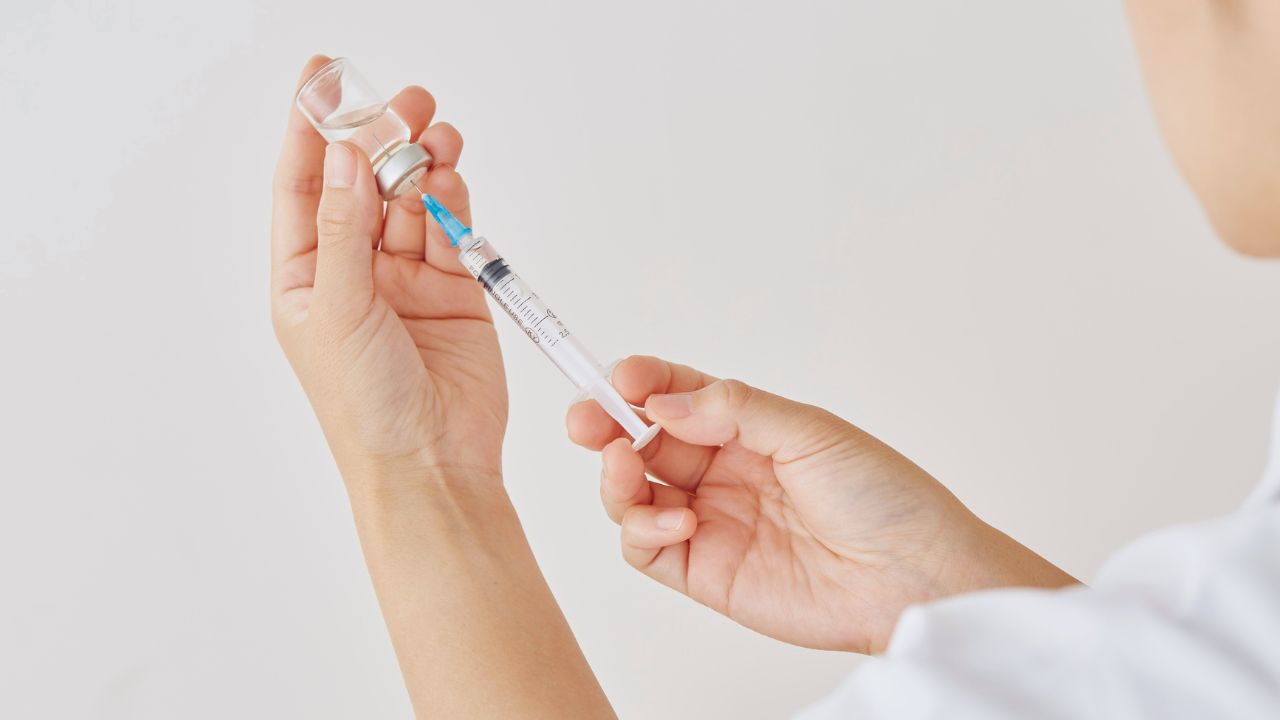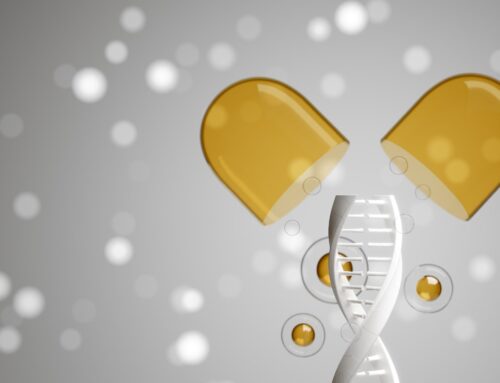Peptide therapy has become one of the fastest-growing approaches in functional and regenerative medicine, with over 100 FDA-approved peptide drugs currently available in the U.S. These powerful short chains of amino acids play a vital role in regulating key functions in the body—from hormone balance and metabolism to tissue repair and immune function.
Whether you’re looking to enhance energy, support weight management, promote anti-aging, or improve recovery, peptide therapy offers targeted benefits with minimal side effects. However, successful outcomes depend on more than just access to peptides, they require a personalized, medically guided approach that takes your unique health history, goals, and lifestyle into account.
That’s where KS Wellness MD stands out. Led by Dr. Khuram Siddiqi, a Beverly Hills-trained Internal Medicine physician with decades of experience in preventive health, KS Wellness specializes in creating customized peptide therapy plans that go beyond generic protocols. Through one-on-one physician assessments, ongoing support, and a concierge-level care experience, KS Wellness helps men and women take control of their health with confidence, clarity, and expert guidance. Click here to get started.
Throughout this guide, you’ll discover everything you need to know about peptide therapy, including how it works, the different types available, administration methods, and what to expect when beginning treatment.
What is peptide therapy, and how does it work?
Peptides represent an exciting frontier in medicine as small chains of amino acids that serve as the building blocks of proteins in your human body. These small molecules, typically containing between 2-100 amino acids, play crucial roles in virtually every biological process. Unlike their larger counterparts, peptides can be precisely designed to target specific cellular functions, making peptide therapy an increasingly popular approach for addressing various health goals.
Understanding peptides and their role in the human body
Your body naturally produces close to 7,000 different types of peptides, each serving important roles as messengers that coordinate countless biological activities. Throughout your body, peptides function as hormones, growth factors, neurotransmitters, and signaling molecules that regulate everything from immune function to metabolism.
For example, peptide hormones like insulin control blood sugar levels, while vasopressin regulates water balance in your body. Defensins serve as antimicrobial agents that support wound healing, furthermore, various growth hormone-releasing peptides stimulate tissue repair and cellular regeneration. These bioactive peptides essentially act as the communication network between your cells, orchestrating complex biological processes that maintain homeostasis.
How peptide therapy mimics natural biological processes
Peptide therapy works through a remarkably straightforward mechanism—it introduces specific peptides that bind to receptors on your cells, triggering precise biological responses. This therapy takes advantage of your body’s existing signaling pathways rather than creating artificial ones.
When administered, therapeutic peptides act as either agonists (activating receptors) or antagonists (blocking receptors). For instance, growth hormone-releasing peptides can enhance your body’s natural production of growth hormone without directly introducing the hormone itself. Consequently, peptide therapy offers a more targeted approach compared to traditional medications, often with fewer side effects.
The history of peptide drug discovery dates back to 1921, with insulin being the first synthetic peptide developed for treating diabetes. Modern peptide therapy has evolved dramatically, with sophisticated techniques for designing peptides that can stimulate collagen production, promote fat loss, boost immune function, or enhance cognitive performance.
Peptides vs. proteins: key differences
Though related, peptides and proteins differ primarily in size and complexity. Proteins generally contain more than 50 amino acids arranged in complex three-dimensional structures, whereas peptides are shorter chains with simpler arrangements. This size distinction proves critical because peptides can penetrate tissues more effectively than proteins.
The structural differences significantly impact how each functions in your body:
- Peptides: Primarily serve as signaling molecules or hormone precursors, with simpler structures and limited folding
- Proteins: Function as enzymes, receptors, or structural components, with complex three-dimensional structures composed of multiple folded domains
Notably, peptides can be more easily absorbed by your body due to their smaller size, allowing them to penetrate your intestines and skin more readily and enter the bloodstream quickly. This enhanced bioavailability makes peptides particularly valuable for therapeutic applications where precise targeting is essential.
Despite great promise, peptides face challenges in therapeutic applications. They generally have poor stability in your body and can be rapidly degraded by enzymes. Therefore, peptide therapy often requires special delivery methods, including subcutaneous injections, nasal sprays, or specially formulated oral supplements to maximize effectiveness.
Types of peptides used in therapy
The therapeutic landscape of peptides encompasses a diverse range of molecules, each designed to target specific biological functions in your human body. These small chains of amino acids offer specialized benefits depending on their structure and binding capabilities. Let’s explore the major categories of peptides used in modern medical treatment.
Growth hormone-releasing peptides
Growth hormone-releasing peptides (GHRPs) work by stimulating your pituitary gland to secrete human growth hormone naturally. Instead of directly introducing synthetic growth hormone, these peptides trigger your body’s own production pathways. Common GHRPs include:
- CJC-1295: Can increase growth hormone levels by 200-1000%, with elevated hormone production continuing for up to 6 days
- Ipamorelin: Known for minimal side effects while supporting metabolism and fat loss
- Sermorelin: Often used for supporting growth hormone levels in aging adults
- GHRP-6 and GHRP-2: The first-in-line synthetic peptides specifically designed to elicit growth hormone release
These growth hormone secretagogues primarily bind to two different receptors (GHS-R1a and CD36), activating prosurvival pathways and reducing cellular death.
Collagen-stimulating peptides
Collagen peptides support skin health by promoting elasticity and natural collagen production. As you age, collagen production naturally decreases, starting in your 20s and accelerating after menopause. Bioactive peptides like GHK-Cu boost collagen production, reduce wrinkles, and improve skin elasticity.
Unlike topical applications, ingested collagen supplements may provide more significant benefits. These supplements typically contain hydrolyzed collagen or collagen hydrolysate derived from animal sources. Many users report improved skin appearance and texture, although more research is needed to confirm these benefits conclusively.
Immune-modulating peptides
Immunomodulatory peptides influence your immune response through various mechanisms. These small molecules can either enhance or suppress immune function depending on your individual needs.
Peptides such as Thymosin Alpha-1 enhance your body’s T cells that aid in fighting off infection, while also helping reduce fatigue and body aches from autoimmune disease. Meanwhile, KPV demonstrates immunomodulating properties that may expedite wound healing and fight inflammation.
Moreover, certain plant peptides like defensins show both immunomodulatory and antimicrobial effects, making them valuable candidates for functional food preparation.
Cognitive-enhancing peptides
Nootropic peptides specifically target brain health and cognitive function. Several peptides have shown promising results in enhancing memory, attention, and overall brain performance.
Selank, a nootropic peptide, promotes calmness and mental clarity while enhancing learning and memory by modulating neurotransmitter balance, particularly serotonin and dopamine. Similarly, Semax boosts cognitive performance under stress and protects against hypoxic brain damage.
According to studies, peptides like FGL improve cognition by activating pathways that trigger activity-dependent delivery of AMPA receptors to the synapses. Subsequently, other peptides such as PTD4-PI3KAc enhance hippocampal-dependent memory by promoting synapse formation.
Peptides for fat loss and muscle growth
For those seeking physical performance improvements, specific peptides target both fat metabolism and muscle development. Tesamorelin promotes lean muscle gain while specifically targeting abdominal fat. BPC-157 supports muscle growth indirectly by speeding up recovery, reducing inflammation, and repairing damaged tissue.
IGF-1 LR3 (Insulin-like Growth Factor-1 Long R3) plays a critical role in muscle development by promoting nitrogen retention and protein synthesis. This modified version of the naturally occurring IGF-1 has a longer half-life and contributes to increased muscle mass.
At the metabolic level, peptides like AOD-9604 target fat metabolism specifically. This fragment of human growth hormone is designed to burn fat without affecting blood sugar levels, making it potentially valuable for weight management goals.
Benefits of peptide therapy for overall health
The remarkable health benefits of peptide therapy extend far beyond basic cellular functions, offering targeted improvements for nearly every system in your human body. These small chains of amino acids work as powerful signaling molecules that trigger specific physiological activities based on your individual needs.
Improved skin elasticity and collagen production
Collagen peptides stand out as effective agents for skin rejuvenation and anti-aging. Clinical studies show that hydrolyzed collagen supplementation significantly improves skin hydration and elasticity compared to placebo groups. The benefits become particularly noticeable after 8 weeks of consistent use.
Collagen is vital for skin structure—type I collagen comprises 90% of total skin collagen and maintains integrity and strength. As you age, collagen production naturally declines, beginning in your 20s and accelerating after menopause. Bioactive peptides combat this decline by stimulating fibroblasts to produce new collagen, thereby enhancing skin elasticity and reducing wrinkles.
Enhanced muscle mass and physical performance
Peptide therapy offers substantial benefits for physical performance through multiple mechanisms. Growth hormone secretagogues can stimulate muscle protein synthesis, helping your body build lean muscle tissue more efficiently without the negative side effects associated with anabolic steroids.
Studies demonstrate that bioactive peptides positively impact body composition and muscular performance while reducing muscle damage following exercise. Notably, research shows collagen peptides can improve both hand strength in older women and isokinetic quadriceps strength in older men when compared to placebo treatments.
These effects occur primarily because certain peptides activate important anabolic signaling pathways like PI3K/Akt/mTOR, which regulate muscle protein turnover.
Support for hormone regulation and energy levels
Many peptides work by stimulating your body’s natural hormone production rather than replacing hormones directly. For instance, growth hormone-releasing peptides trigger your pituitary gland to increase growth hormone secretion, which helps regulate metabolism, muscle growth, and overall vitality.
Peptide therapy can also support sustainable energy production by optimizing hormone levels. Users often report feeling noticeably more energized and alert throughout the day, which significantly improves daily productivity and overall quality of life.
Boosted immune response and recovery process
Peptides play crucial roles in modulating immune function. Some peptides demonstrate robust anti-inflammatory potential by inhibiting the nuclear factor kappa B pathway, which helps control inflammation throughout your body.
In the recovery process, peptides aid tissue repair and reduce inflammation, allowing your body to recover faster between training sessions. Hence, athletes and active individuals can train more frequently at higher intensities without overtraining or injury risks.
Cognitive function and sleep quality improvements
Recent studies reveal compelling benefits for brain health and sleep quality. Collagen peptides containing glycine can improve sleep by activating NMDA receptors in the suprachiasmatic nucleus. In one study, participants taking collagen peptides experienced significantly fewer nighttime awakenings compared to the control group.
Lastly, certain peptides enhance cognitive performance. In research studies, participants taking collagen peptides showed improved accuracy on cognitive tests compared to control groups. Peptides like Selank and Semax have been linked to enhanced memory, focus, and learning abilities by promoting neurogenesis and aiding in the repair of damaged brain cells.
Certainly, as peptide therapy continues to evolve, researchers are discovering new applications across multiple aspects of human health and wellness.
How peptide therapy is administered
The delivery method of peptide therapy significantly impacts its effectiveness in your human body. Peptide therapeutics must overcome various biological barriers to reach their intended targets, making the administration route a critical factor in treatment success.
Peptide injections vs. oral supplements
Peptide injections deliver therapeutic peptides directly to your bloodstream, bypassing the digestive system that would otherwise break down these small chains of amino acids. This leads to absorption rates typically exceeding 90%, versus oral supplements which may achieve only 50% absorption or less. First and foremost, subcutaneous injections remain the dominant route for administering peptide drugs precisely because they maintain the structural integrity of these small molecules.
Even so, researchers are actively developing improved oral delivery systems using lipid-based nanocarriers that protect peptides from digestive enzymes. One promising advancement involves bacteria that secrete therapeutic peptides inside your digestive tract, potentially eliminating the need for daily injections.
Topical creams and nasal sprays
Beyond injections, peptide therapy embraces alternative delivery methods suited for specific individual needs. Topical creams containing collagen-stimulating peptides directly target skin health and collagen production. Additionally, nasal sprays offer another non-invasive option, delivering peptides through the nasal mucosa for rapid absorption.
Nasal administration proves particularly effective for peptides targeting cognitive function, as this route provides direct access to the central nervous system. For instance, PT-141 nasal spray offers a quick, convenient delivery method for addressing sexual dysfunction without requiring injections.
Subcutaneous injection: what to expect
During subcutaneous injection, peptides enter the fatty tissue between your skin and muscle using a small insulin needle. Most effective injection sites include:
- Your abdomen (avoiding the 2-inch area around your navel)
- The middle front or outside of your thighs
- Upper areas of your buttocks
- Back part of your upper arms (if someone else administers)
Prior to injection, clean the site with an alcohol pad and inject at a 45-degree angle across pinched skin. Throughout your treatment, alternate injection sites to prevent tissue damage and ensure consistent absorption.
How long do peptides take to work?
Typically, you might notice initial improvements within 3 weeks of starting peptide therapy. Nevertheless, full effects generally manifest between 3-6 months of consistent treatment. Factors affecting timeline include your body’s unique biochemistry, the specific peptides used, and your treatment goals.
For acute conditions like injuries, certain peptides may provide relief within days. Conversely, chronic conditions or overall health optimization goals require longer timeframes as peptide therapy gradually restores balance to your body’s systems.
Risks, side effects, and safety considerations
While peptide therapy offers promising health benefits, understanding potential risks remains crucial for your safety. Safety profiles vary depending on peptide sources, quality, and administration methods, making informed decisions essential before beginning treatment.
Are peptides safe for everyone?
Peptide therapy isn’t suitable for everyone. Pregnant or breastfeeding individuals should avoid these small chains of amino acids due to limited safety research. People with existing medical conditions or those taking medications should consult their healthcare provider before starting therapy, as peptides may interact with other treatments. Unlike some cosmetics and supplements, FDA-approved peptide drugs have undergone rigorous testing and regulation.
The source of your peptides dramatically affects safety. Many peptide supplements lack FDA regulation, raising serious quality and purity concerns. Always source peptides from reputable pharmaceutical companies or licensed compounding pharmacies to minimize risks.
Common side effects of peptide therapy
Most side effects of peptide therapy are mild and temporary:
- Injection site reactions: Pain, swelling, redness, and itching at injection sites
- Water retention: Swelling in lower legs or hands (peripheral edema)
- Systemic reactions: Fatigue, headaches, or nausea
- Skin sensitivity: Possible rashes, especially with topical applications
In rare cases, more serious side effects require immediate medical attention, including allergic reactions (skin rash, hives, swelling of face/throat), respiratory issues (trouble breathing, chest pain), and cardiovascular symptoms (high blood pressure, rapid heart rate) .
What to ask your healthcare provider
Before starting peptide therapy, prepare these essential questions for your healthcare provider:
- Which specific peptides are appropriate for my individual needs?
- What potential interactions might occur with my current medications?
- How will we monitor for side effects throughout treatment?
- What safety protocols are in place if adverse reactions occur?
- Is this peptide FDA-approved or being used off-label?
A trustworthy clinic will openly discuss potential risks and explain how they’ll monitor your safety throughout treatment.
FDA regulation and clinical use of peptide drugs
The FDA has approved numerous peptide medications through rigorous clinical trials. These drugs have well-researched safety profiles and are tightly regulated. Unlike approved medications, many peptides available online lack regulatory oversight, creating potential dangers from impurities, incorrect dosages, or harmful additives.
The FDA evaluates peptide drug products submitted under new drug applications (NDAs) for various factors, including impact on QTc prolongation risk and immunogenicity. Regular monitoring and adjustments remain key components of any safe peptide therapy plan.
Conclusion: Choosing Peptide Therapy for the Future of Your Health
Peptide therapy isn’t a one-size-fits-all solution—it’s a highly individualized treatment that requires medical insight, attention to detail, and a commitment to your long-term wellness. With so many options available, choosing a provider who understands the science and prioritizes your personal health goals is essential.
At KS Wellness MD, in our Elite Wellness Program, we combine the latest in peptide science with compassionate, concierge-style care. From your initial consultation to each phase of your treatment plan, Dr. Siddiqi and our dedicated team are here to ensure you receive safe, effective, and tailored care every step of the way.
If you’re ready to explore how peptide therapy can support your health journey, KS Wellness MD is your trusted partner in achieving real, sustainable results.
Peptide Therapy FAQs
How do I begin peptide therapy?
To start peptide therapy, consult with a qualified healthcare provider who can assess your individual needs and health status. They will determine the appropriate peptides, dosage, and administration method for you. Typically, treatment begins with a low dose that may be gradually increased under medical supervision.
What are the potential side effects of peptide therapy?
Common side effects of peptide therapy are usually mild and may include injection site reactions (pain, redness, or swelling), water retention, fatigue, headaches, or skin sensitivity. Serious side effects are rare but can include allergic reactions or cardiovascular symptoms. Always report any unusual symptoms to your healthcare provider.
How long does it take to see results from peptide therapy?
Initial improvements from peptide therapy may be noticeable within 3 weeks of starting treatment. However, full effects typically manifest between 3-6 months of consistent use. The timeline can vary depending on individual factors, specific peptides used, and treatment goals.
Are peptides safe for everyone to use?
Peptide therapy isn’t suitable for everyone. Pregnant or breastfeeding individuals should avoid it, and those with existing medical conditions or taking medications should consult their healthcare provider first. It’s crucial to source peptides from reputable providers and use FDA-approved peptide drugs when possible for maximum safety.
What are the different ways to administer peptide therapy?
Peptide therapy can be administered through various methods, including subcutaneous injections, oral supplements, topical creams, and nasal sprays. Subcutaneous injections are the most common and effective method, while other forms may be used for specific applications or patient preferences. Your healthcare provider will recommend the most suitable administration method for your treatment.




